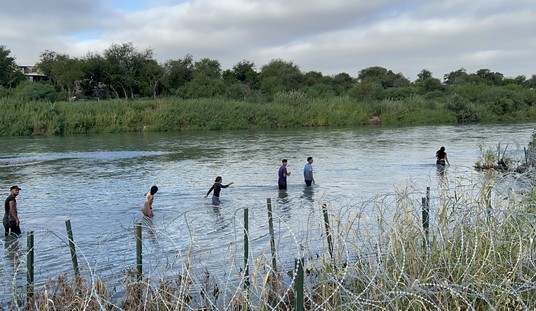RedState friends, I’d like to present to you here a guest post from one of the intellectual free-market leaders at the Texas Public Policy Foundation, Director of the Center for Economic Freedom Bill Peacock. I’m proud to call Bill a colleague, and he’s been in the trenches fighting for good policy for well over a decade.
The topic Bill writes about here, eminent-domain reform, is of profound national interest in the post-Kelo world. Given Texas’s outsized role driving our national economy in the past decade, it’s going to take on an increasing role driving national policy as well. If there’s any state that must get private-property protection right, it’s Texas.
Thanks for welcoming Bill Peacock — and TPPF — to RedState!
 Texas seems to be at or near the top of about every major ranking of the states one can find: jobs created, Fortune 500 companies, attracting new business, and overall economic performance. We may even be the national leader in lawsuits against the federal government.
Texas seems to be at or near the top of about every major ranking of the states one can find: jobs created, Fortune 500 companies, attracting new business, and overall economic performance. We may even be the national leader in lawsuits against the federal government.
However, one area where Texas notoriously lags behind: the protection of private property rights.
It has been almost six years since the U.S. Supreme Court’s Kelo opinion awoke the nation to the sad state of the country’s eminent domain laws. According to a narrow majority of the Court, the mere possibility that private property might make more money for a developer and a city when put to another use is reason enough for the government to take it away.
Kelo set off a chain reaction of states enacting comprehensive reform to protect property owners who could no longer depend on the U.S. Constitution’s Taking Clause. Florida, South Dakota, New Mexico, and Arizona—among many others, dramatically improved their states’ property rights protections. However, here in Texas, we are still waiting.
Not that Texas hasn’t made some changes. We’ve at least (mostly) banned takings for economic development purposes and required that blight determinations be made on a parcel by parcel basis. The Institute for Justice generously grades us at a B-. However, this ranks us no better than 21st among the states. The fact that we rank ahead of California (D-) and New York (F) is in this case of little comfort to Texas property owners still awaiting comprehensive reform.
Yet there is hope. Texas Gov. Rick Perry has proclaimed eminent domain reform an emergency item for the Texas Legislature, allowing the issue to be considered before other bills can be heard. Because of this, eminent domain reform legislation (SB 18) has already passed the Texas Senate and will be taken up by a Texas House committee on Monday.
While it offers improvement over the status quo, the problem with SB 18 is that it has been highly negotiated by special interests over the last three legislative sessions, resulting in an “agreed upon” bill that people are reluctant to change less someone jump off the bandwagon. However, when one of those on the bandwagon is the Texas Municipal League, how good SB 18 can be? After all, it was TML that proclaimed that Kelo “simply confirms what cities have known all along: under the Fifth Amendment to the U.S. Constitution, economic development can be as much a ‘public use’ as a road, bridge, or water tower.”
One example—the buyback provision—will suffice to show the need to improve SB 18.
Currently, while property can only be taken for a public use, there is no requirement that the property—once taken—must be used for that same use. So, for a real life example, property owners near San Antonio might find their property taken for a reservoir eventually being used for a Toyota plant. SB 18 has a provision to address this problem, but it is unfortunately worse than current law.
According to SB 18, a government entity has to meet two of seven criteria to demonstrate that it is using a property for the public use for which it was taken—and thereby avoid the requirement to offer the property for sale back to the original owner. However, one of those seven criteria is that the government entity pass a resolution saying they will only meet one of the other six! Then four of those six are requirements that the government entity 1) apply for a permit, 2) apply for funds, 3) take two properties for the same use, or 4) hire an architect. No property owner will ever get her property back under SB 18.
There are a lot of ways that SB 18 can be improved. It is important to do so because if there is one area that Texas should be leading the country, it is in the protection of private property rights. Texas’ efforts in promoting deregulation, standing up for Tenth Amendment rights, and keep taxes low have greatly benefited the entire country—both in setting a national example and in providing a place for out-of-work Americans to find a job. Comprehensive reform through an improved SB 18 will set the stage for greater property rights protections across the country, especially in the next area in need of reform, regulatory takings.
With SB 18 moving at a rapid pace—at least for legislative proceedings, we may know the fate of property rights reform in Texas by the end of next week.













Join the conversation as a VIP Member